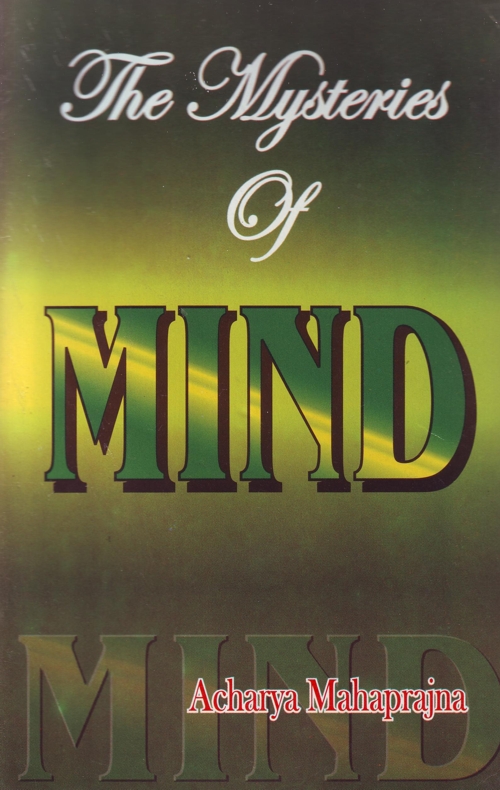
- Removal of mental tensions leads to the arousing of energy.
- Tensions produce emotions.
- From passions to tension, from tension to passions, hence imbalance.
- What is pleasure? What is pain
- That which results in pleasantness is pleasure.
- That which results in unpleasantness is pain.
- Tension and emotion are one and the same thing.
- Where there is tension, there is emotion. Where there is emotion there is tension.
- Tension is the root causes of sorrows.
- Three chief cause of disease:
- Body
- Mind
- Food
- Renunciation of objects and its consequences.
- Mental balance means freedom from attachments and aversions and a state of equality.
- Ignorance is the cause of mental and physical disease
- Not knowledge alone, but direct contact.
Relief From Mental Tensions
Exercises in the yoga camps are comprised of breath perception, body perception and kayotsarga (abandonment of the body). What is the purpose of these exercises and what do we achieve from them? The greatest problem for the modern man is that he is over-pressurised. He suffers from tension and strain. When our body is light, our experiences become wholesome and when the body is tense, they become exacting. This applies to the mind also. A tense mind is uneasy and a relieved mind feels easy.
Every one wants to lead a comfortable life. He likes to feel light. The initial achievement of sadhana is the feeling of being light. It means relief from pressures and tensions.
The modern man is a patient of mental and physical tensions. He lacks in peace of mind. He is always restless. Having done exhausting labour he needs rest and calm. When one shoulder of a man carrying a heavy load becomes tired, he shifts the load to the other shoulder so that the tired shoulder may get a little rest. Sometimes he puts the load down and stops to rest. Our activities are an alternation of work and rest. We are thus constantly in need of rest so that we may feel that there is no burden on us and no tension in our mind.
We know that we have a body and that we work and labour with it. We also know how to give rest to the body. We work with the mind also but we do not know how to give it rest. We think but we do not know that state of the mind in which there is no thinking. We do not know how to get rid of thinking. Once we have begun to think, it becomes difficult to stop the process of thinking. All this is due to the fact that we have not yet known the value of thoughtlessness.
When we are tired, we lie down to rest. After a little rest the body becomes relaxed and fresh. Sleep also produces relaxation and freshness in the body. But these devices do not give relaxation and freshness to the mind. The mind goes on thinking and feeling tense even in sleep. We dream also. The mind remains entangled in the dreams and does not get relief. Sometimes we go on dreaming throughout the duration of sleep. Dreaming is not sleeping. When we arise from sleep, we complain that our sleep had been disturbed by dreams. In such cases, even inspite of a long sleep, our mind remains tired and tense. The fact is that we do not know how to give rest to the mind.
Breath perception is a means of giving rest to the body or of going to sleep so that it may become light and free from thinking. We can give rest to the mind if we know how to live in the present moment. We spend most of our life in living either in the past or in the future. We live very little in the present. Our mind remains too much engrossed in memories of the past or in weaving webs of imagination as regards the future. It is unnecessarily caught in the snares of memories and imagination. It gets little time for living in the present moment.
It is because we want to preserve the past that we are lost in memories of it. We like to remember all that we had in the past and feel that we cannot live without it. In the same way we are busy thinking of the future and feel that life will become impossible without planning it. It is on this account that we are not interested in what the spiritualists tell us. They advise us to give up all the memories of the past and all the anxieties about the future. They exhort us to do away with every concern with the future and to bring life to a standstill. What they say is that we should not be burdened with memories of the past and futile plans of the future. We should not spend too much time in them but only a reasonably short time. The mentality to remain absorbed in them is undesirable.
What are dreams? Memories and expectations which, visit our minds while we are awake assume the form of dreams in sleep. Thus we remain caught in the web of memories and expectations and anticipations day and night. The purpose oisadhana is to extract us from these webs. They produce nothing but physical and mental tensions. They lead the mind astray.
Random memories bring in their train sometimes anger, sometimes pride and sometimes greed with the result that our minds become surcharged with all kinds of emotions and we cannot even have our meals. All this happens because we do not live in the present. We have not learnt to live in the present moment. To live in the present means that we should keep our minds fully engaged in what we are doing at the moment. No memory should be allowed to haunt our mind while we are engaged in our work, whatever it may be. When we sit down to have meal, we should have it with the whole mind in it. When we walk we should not think of anything except walking. We should tie the mind to the act we are doing at the present moment. There are men whose minds are wandering elsewhere while they are having a meal. For such people eating becomes a mechanical activity which does not give them any joy. The spiritualists tell us that we should do nothing but eat when we are at the dining table. The whole mind should be kept busy in the act of eating. The atheists also say the same thing. They exhort us not to leave the present moment to anticipate what is going to happen in the future. It is out of sheer ignorance that we relinquish present pleasures and run after those which we anticipate. There is nothing wrong with the atheists when they insist on living in the present moment.
 Acharya Mahaprajna
Acharya Mahaprajna

